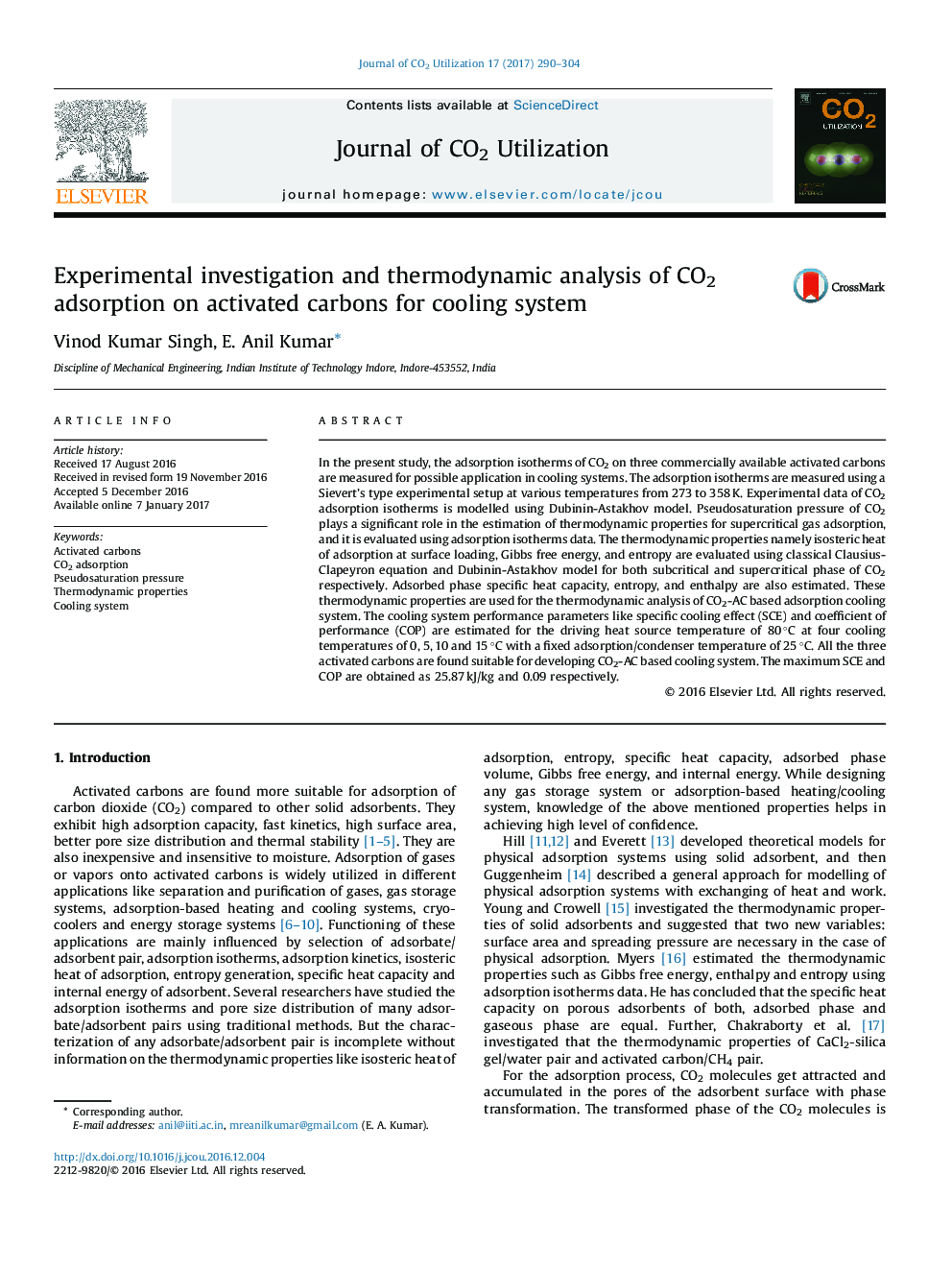| Article ID | Journal | Published Year | Pages | File Type |
|---|---|---|---|---|
| 6456348 | Journal of CO2 Utilization | 2017 | 15 Pages |
â¢Adsorption isotherms of CO2 onto three commercially available activated carbons at various temperatures are measured.â¢Thermodynamic properties are evaluated for both subcritical and supercritical phase of CO2.â¢Pseudosaturation pressure of CO2 is estimated using adsorption isotherms data.â¢SCE and COP are estimated at different evaporator temperatures.â¢Thermodynamic analysis is useful for designing of CO2-activated carbon based cooling system.
In the present study, the adsorption isotherms of CO2 on three commercially available activated carbons are measured for possible application in cooling systems. The adsorption isotherms are measured using a Sievert's type experimental setup at various temperatures from 273 to 358 K. Experimental data of CO2 adsorption isotherms is modelled using Dubinin-Astakhov model. Pseudosaturation pressure of CO2 plays a significant role in the estimation of thermodynamic properties for supercritical gas adsorption, and it is evaluated using adsorption isotherms data. The thermodynamic properties namely isosteric heat of adsorption at surface loading, Gibbs free energy, and entropy are evaluated using classical Clausius-Clapeyron equation and Dubinin-Astakhov model for both subcritical and supercritical phase of CO2 respectively. Adsorbed phase specific heat capacity, entropy, and enthalpy are also estimated. These thermodynamic properties are used for the thermodynamic analysis of CO2-AC based adsorption cooling system. The cooling system performance parameters like specific cooling effect (SCE) and coefficient of performance (COP) are estimated for the driving heat source temperature of 80 °C at four cooling temperatures of 0, 5, 10 and 15 °C with a fixed adsorption/condenser temperature of 25 °C. All the three activated carbons are found suitable for developing CO2-AC based cooling system. The maximum SCE and COP are obtained as 25.87 kJ/kg and 0.09 respectively.
